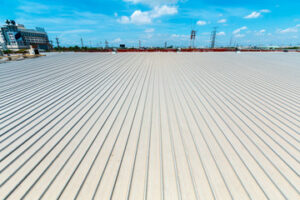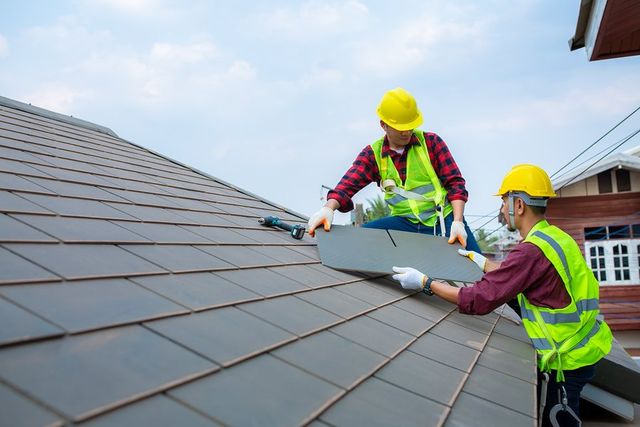Types Of Commercial Roofing
If you own a business, you’ll have a lot of different options when it comes to the material for your roof. From asphalt to metal sheets, there are dozens of choices when it comes to commercial roofing. Here are some of the most common types of material. Metal roofing is one of the most popular options, and it has many benefits, including long-lasting durability. Metal roofing can be galvanized steel, aluminum, copper, and even coated stainless steel.

The most common type of commercial roofing is flat. Flat roofs have poor drainage, and standing water will weaken your roof’s materials over time. In addition to leaking and damage to your property, hire an experienced Roofing contractor to install or repair your roof. For example, an experienced commercial roofing contractor will know what material to use and how to calculate the right drainage height to prevent water damage and leakage inside your building. You can also contact a commercial roofing company to perform repairs or installation of a new roof for your business.
Most commercial roofing contractors make half of their annual revenue from commercial projects. Roofing contractors tend to be younger than average, with approximately 60% of respondents being 40-59 years old. Among the respondents, 38% are general managers, while 35% are corporate or executive managers. The survey results also indicate that contractors are attempting to recruit employees through multiple avenues, including advertising in newspapers, direct mail, and online classifieds.
The type of roofing material used varies from residential to commercial. Commercial roofing materials are typically more expensive than residential roofing materials, but they should be made with a similar amount of maintenance as residential roofs. Generally, commercial roofing is less complicated to install than residential roofs. In addition to being less expensive, residential roofs are easier to maintain and repair. If you own a business, commercial roofing may be the best choice for your building. Once installed, you’ll be amazed by the durability and beauty of your new roof.
In choosing a new commercial roof material, keep in mind that energy efficiency is a growing trend. Many cities have begun requiring the installation of energy-efficient systems. These can save your business money in the long run by lowering its energy bills. Commercial roofing materials also tend to last longer than residential roofing materials, which means you’ll have fewer problems with maintenance and repairs. This is one of the many reasons why it’s so important to choose the right material for your building.
A licensed roofing contractor will inspect your current roof and make recommendations based on the existing conditions. They’ll evaluate the materials you’re considering, as well as the structure of your building. Your commercial roofing contractor can also recommend replacement or repair options based on their findings. Depending on the materials you choose, a new roof can take as little as a day or two. Larger buildings, on the other hand, can take up to a month.
Another option is EPDM (ethylene propylene diene monomer) roofing. This is a special type of rubber that protects against UV rays. It is a great choice for commercial roofs in hot climates because it can be combined with a reflective material to help keep the building cooler. However, EPDM is not as durable as modified bitumen. If you’re looking to save money on energy bills, EPDM is a great choice. Unlike modified bitumen, EPDM doesn’t withstand foot traffic.
Another option for commercial roofing is thermoplastic polyolefin (TPO) roofing. It has numerous advantages, including being lightweight, heat-reflective, and puncture-resistant. TPO is also a good option for flat roofs. Because of its flexibility, this material is easy to install. In addition to being lightweight, TPO is also resistant to extreme weather conditions. A thermoplastic membrane roof will withstand high temperatures and high winds.
PVC is a better option for commercial roofing than modified bitumen. It’s fully waterproof, fire-resistant, and is a good choice for industrial buildings. PVC can be welded to metal or fixed around unusual shapes. It’s also recyclable. The benefits of PVC roofing include aesthetic appeal, durability, and ease of repair. This option is also environmentally friendly and can save energy. So, the decision is yours.
Another option for commercial roofing is a green roof. Unlike conventional roofing, green roofs do not require additional frames or structures. Instead, they incorporate plants and other insulation layers. You’ll also need drainage systems to prevent excessive water buildup. You’ll also need to hire an experienced roofing contractor if you’re going to go this route. The right contractor can also offer warranties and provide a maintenance schedule. There are so many things to consider when selecting a commercial roof for your business.

